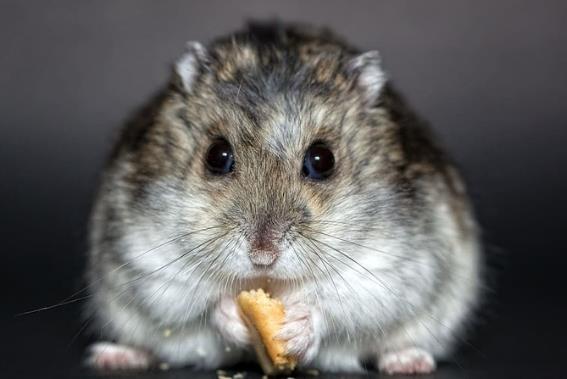Here are 7 scientific methods to determine a hamster's age, integrating multi-dimensional indicators like body shape, behavior, and physiological characteristics:

1. Body Shape & Weight Changes
Juvenile (<3 months)
Body length < 5cm, weight < 30g; rounded back with no bone protrusion.
Soft, dense baby fur (gradually sheds before 2 months).
Adult (3 months–1.5 years)
Syrian hamsters: 12–15cm length; dwarf hamsters: 6–8cm.
Well-muscled; male scent glands and testes are visible.
Senior (>1.5 years)
Prominent spine; weight drops 20%–30%.
Loose, wrinkled abdominal skin.
2. Fur Characteristics
Young hamsters: Dense, glossy fur with vibrant colors.
Senior hamsters:
Sparse fur (abdomen may show skin).
Fading/gray fur with rough texture.
3. Tooth Condition
Juvenile teeth are white and sharp, yellowing gradually in adulthood.
Seniors show severe incisor wear, possible breakage or overgrowth.
4. Activity Patterns
Young hamsters:
High activity (average daily wheel running >5km).
Curious, frequently gnawing on cage bars.
Senior hamsters:
Activity drops by >50%; avoids running wheels.
Sleeps 18–20 hours daily.
5. Facial Features
Eyes: Bright in young hamsters, cloudy in seniors.
Paws & nose: Pink → dark purple (noticeable after 1.5 years).
6. Developmental Milestones
Eye opening: 15 days for Syrians, 14 days for dwarfs.
Sexual maturity: Male testes visible at 2 months; female heat cycles start at 3 months.
7. Human Age Equivalents
1 month ≈ 6 human years; 6 months ≈ 20 years
1 year ≈ 35 years; 2 years ≈ 80 years
Tips: Use multiple indicators for accuracy. Seniors need extra warmth (maintain >20℃ in winter) and soft food. When buying, choose 2–4-month-olds with balanced body shape and dense fur.
